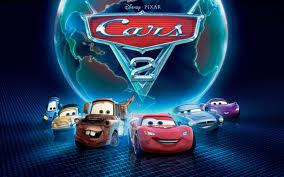This is another installment from my 10-part series hosted by KLRN on being money savvy, called It Just Makes Cents. This one encourages you to be smart and frugal about the car-buying process.
If you prefer knowledge like this to enter straight into your ear-hole, then you would want to go to the SoundCloud links provided by KLRN.
Finally, text is the way I generally learn, so let’s do that too!
—
One of the hardest things to get our heads around about cars: A car is a large consumer device that loses value over time. It’s not an investment. It’s not our personality. Also – beware the manipulative question “How much can you afford to pay per month?”
Car Marketing – Beware
Our brains have been soaked and marinated in car advertisements practically since birth. I think this is why it’s difficult to imagine that the “meaning” of a car isn’t bigger than the “meaning” of a washing machine, dishwasher, or any other useful but ultimately disposable thing that just loses value every year and costs money to maintain. With cars, we tend to crave more from the brand than from our dishwasher brand. That craving costs us money.
A car doesn’t define your sex-appeal. It doesn’t make you stronger. An expensive car does not make you rich. In fact, just the opposite. To the extent a car is an expensive consumer device you bought on credit, it makes you poorer. This is sometimes difficult to remember, because of the car advertisements in every media we’ve all seen every single day of our lives.
Less Car, Less Often
Here are the two big lifetime ideas about how to be financially clever about car buying: Buy less car. And buy cars less often.

“Less car” doesn’t mean just 2 of the 4 wheels and engine, while forgetting the brakes and roof. It means: look to buy a car that literally costs less.
A car good enough to take you from home to work, and back again, could cost you one-tenth of your annual salary. Or it could cost you half of your annual salary. Which one do you want? Try to go with the one-tenth end of the spectrum. If you don’t make a huge salary, you’re looking at an older vehicle with some significant mileage on it.
And “less often” means try to extend the life of your existing ride. Make it last 15 years, not 5 years. Don’t trade it in after 5 just because the dealer reached out to you. What the sexy car advertisements don’t tell you is that every time you buy or sell your car, you lose money. Fewer lifetime transactions means less of your money lost.
Get Pre-Approved Before Walking on the Lot
Finally – Let’s talk about car credit. In an ideal world (I know, I know, most of us are not there yet) you buy a car with cash. Paying cash would tend to force you to shop for “less car,” which is a win.
But I know we’ll often have to buy on credit, getting an auto loan.
The best way to do that is to separate the loan process from the auto shopping. What do I mean by that? I mean, line up an auto loan in advance – before walking onto the car lot. Your bank or credit union is in the business of lending for cars. You get pre-approved for a certain amount of a car loan – given your current credit and income – and you’ll then know what you can afford. Shopping for a car, with pre-approval from your bank or credit union only up to a certain amount, limits the temptation to buy more car than you need.
Beware the “Monthly Payment” conversation
It will also keep the car-buying negotiation fixed on the price of the car, where your focus should stay. Car dealerships notoriously focus your attention on the “monthly payment.” That’s a trick. The cost of the car is in the price, and the interest rate you pay on the loan. The “monthly payment” conversation essentially distracts us from getting the best interest rate and the lowest price overall.
The best you can do
Most of us are not yet living in a ‘post-car’ world. If you can get by on biking and the occasional Lyft/Uber, that could be worth tens of thousands, maybe hundreds of thousands, over your lifetime. But we’re not there yet – and until that day, cars are still useful.
The best you can do, financially, is minimize cars’ hurt to your bottom line. Buy less car. Less often. Use cash if you can, and shop for the lowest auto-loan interest rate before buying, if you must borrow.
Please see related posts

Post read (254) times.


